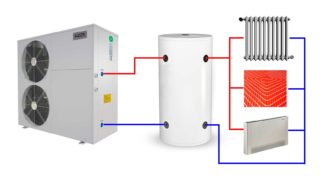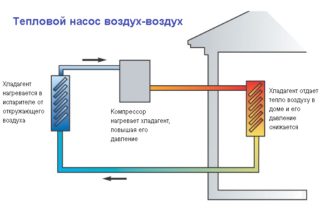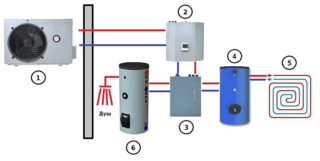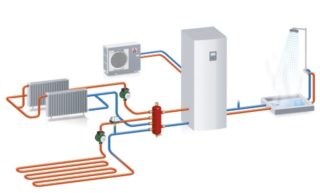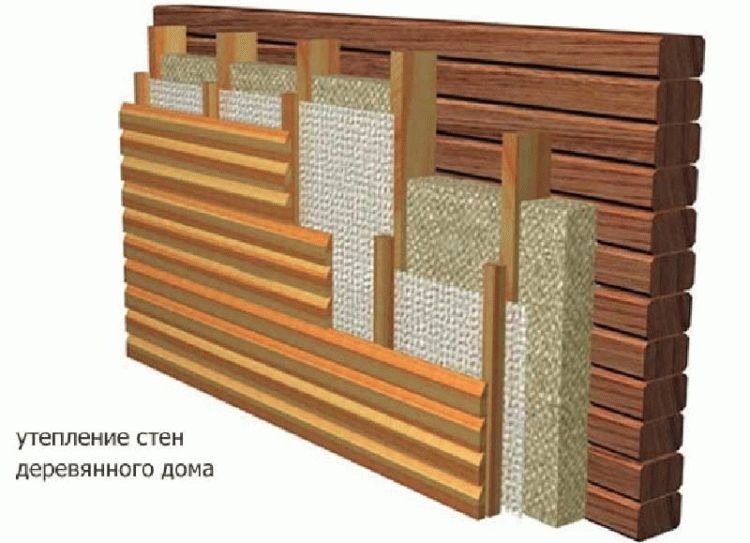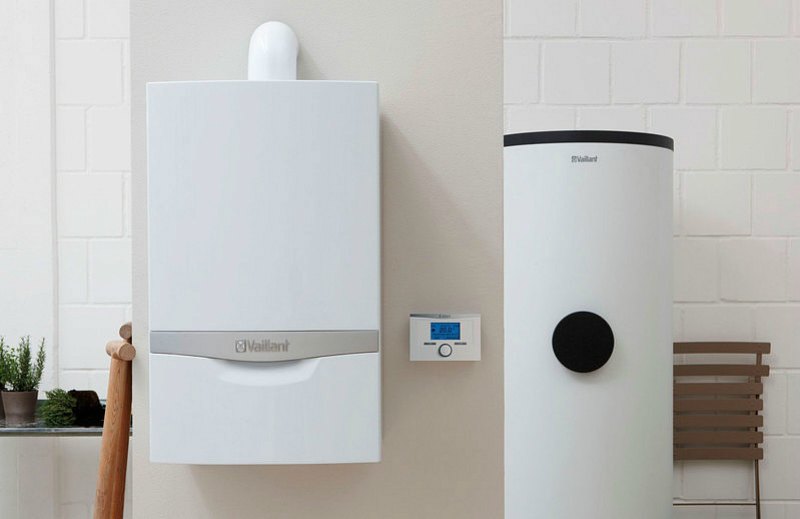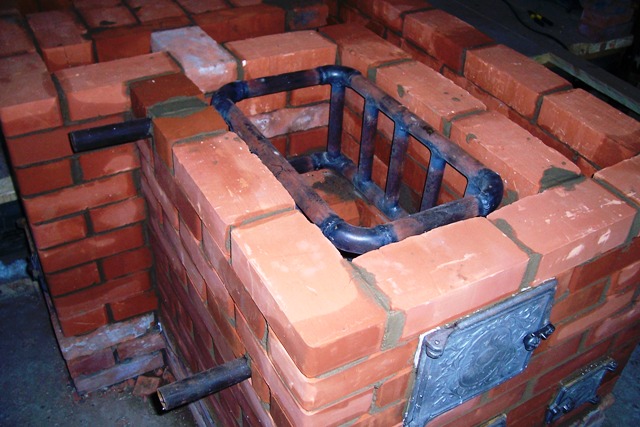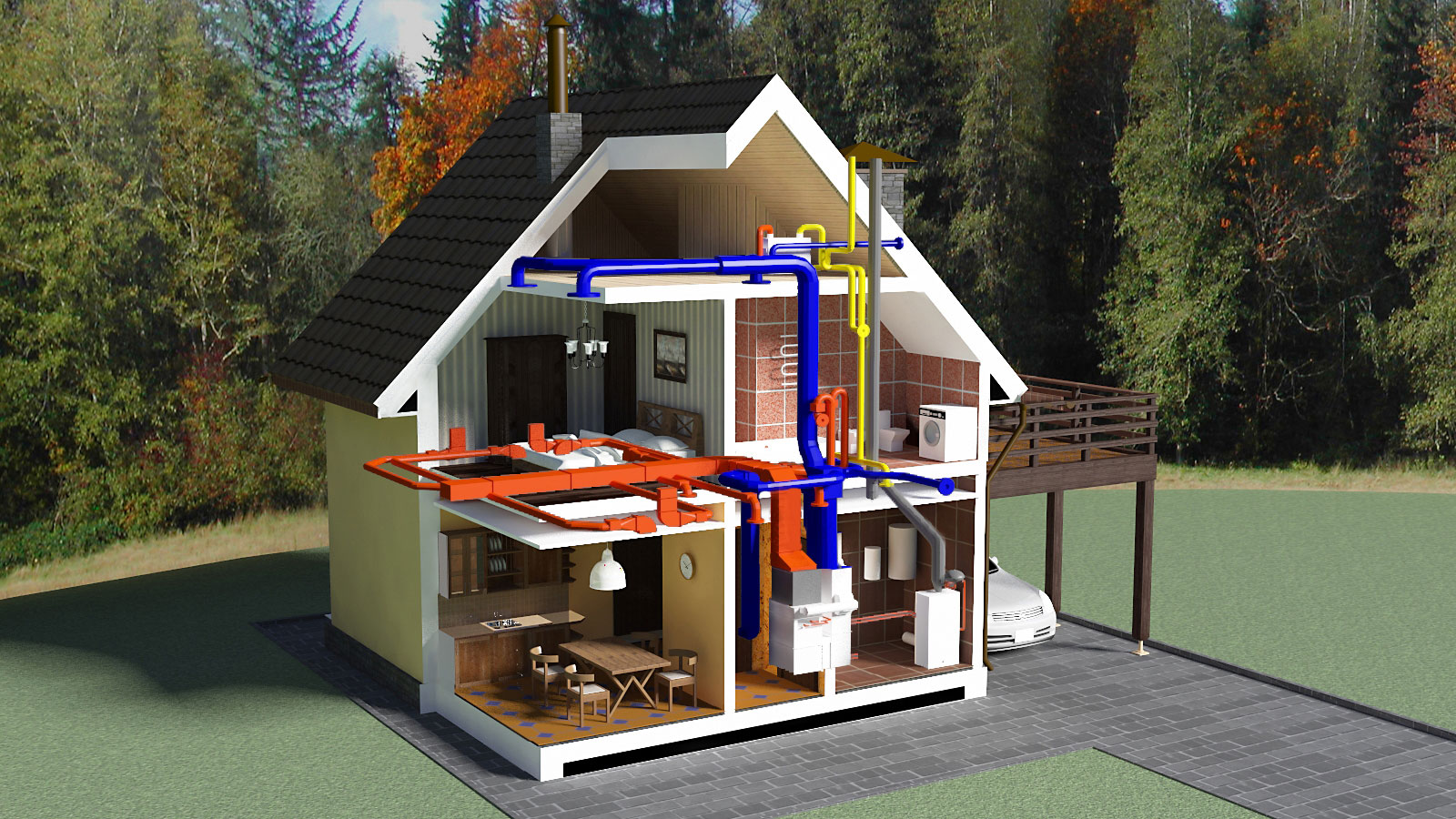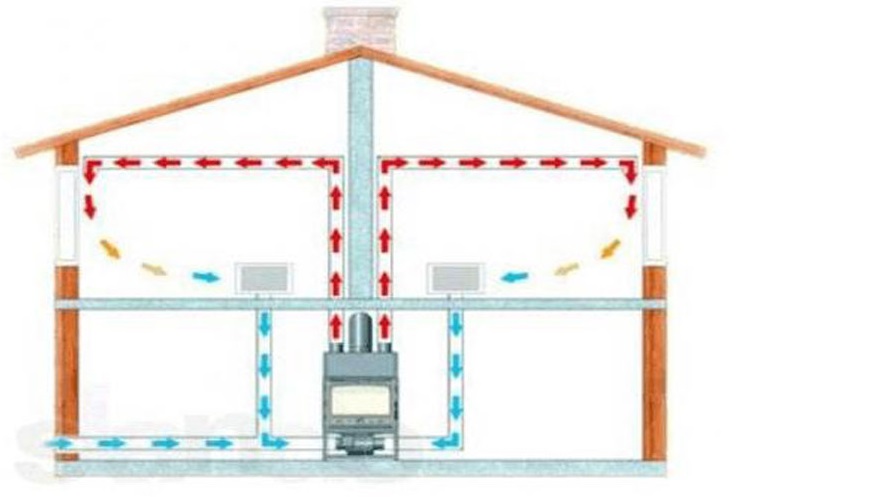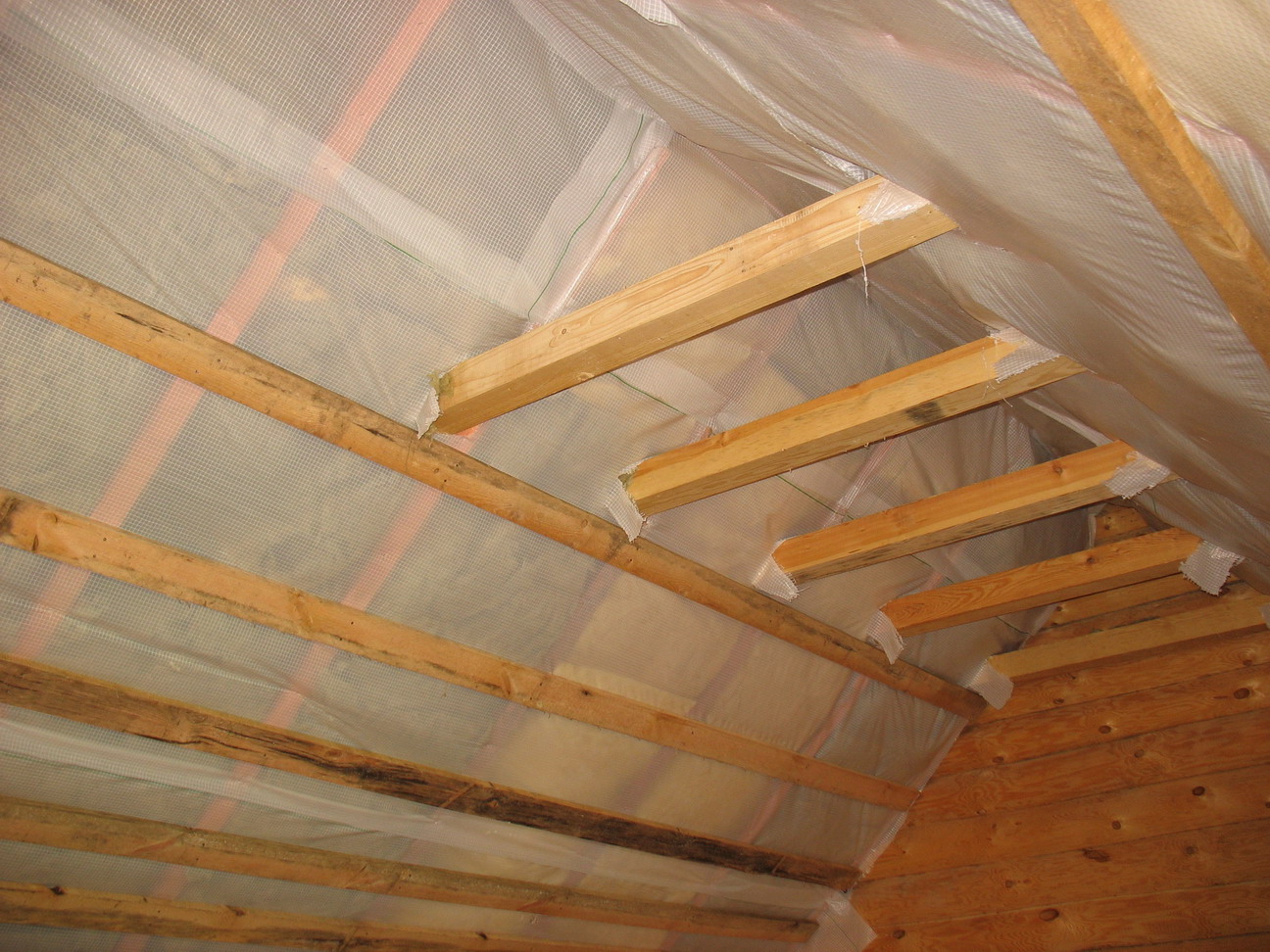Thanks to the rapid development of the field of alternative energy, they began to actively equip private living quarters with such equipment. These systems include air-to-air heat pumps (HP). True, before buying a compressor, which is the main element of the system, it is advisable to familiarize yourself with the principle of operation and the rules for installing heat pumps.
The uniqueness of the equipment lies in the fact that it takes heat directly from the atmosphere, which makes it possible to significantly reduce the cost of heating a house. The heat pump takes air from the street, as well as from the premises, after which it distributes the air masses to all facilities of the structure. At the same time, there is no need to purchase combustible types of fuel. In appearance, the air-to-air heat pump is very similar to an inverter air conditioning system.
Principle of operation
- compression installation;
- an evaporator equipped with a special fan, with the help of which forced airflow is performed;
- expansion valve;
- tubes made of high quality copper (with their help, freon moves between the street space and the cottage);
- a condenser, with the help of which heated air is distributed throughout the residential and non-residential premises of the facility.
After the air flow from the outside enters the system with the help of the fan, it passes through the fins of the external evaporator. Freon uses the received heat energy, gradually turning into a gas state. After that, the gaseous substance enters the condenser. Getting into the copper tubes, the gas moves to the internal block of the system.
As soon as freon enters the condenser located in the interior of the house, it "turns" back into a liquid state, due to which the transfer of warm flows into the interior of all rooms of the dwelling takes place. An expansion valve is required to relieve excess pressure.
Advantages of air-to-air heat pumps
- the versatility of the heat pump allows for the heating and cooling process in commercial, municipal, industrial and residential buildings;
- since the systems do not use any combustible fuel, they are much more environmentally friendly than similar units;
- if you have experience in installing such devices and special tools, the installation of a fuel pump of this type can be done on your own as soon as possible;
- the equipment has a high coefficient of heat transfer and does not require special costs for regular maintenance;
- the reasonable price of TN allows people with almost any monthly income to purchase a factory system;
- a minimum amount of time is spent on servicing the compressor;
- no combustible materials are used for the manufacture of devices, and fuel is used for operation, which allows us to speak of their complete fire safety.
According to feedback from those who have already installed an air-to-air fuel pump and numerous experts, equipment rarely fails before the end of the warranty period. In addition, heat pumps are distinguished by their maintainability and low cost of parts and component materials. The system is controlled and monitored by automation.
Several minor flaws
- in the process of functioning, they make a little noise, which is extremely inconvenient if an infant lives in the house;
- the heat transfer coefficient directly depends on the ambient temperature outside the windows of the object;
- in the cold season, the amount of electricity consumed by the system increases;
- in the process of continuous operation of the compressor, a large number of tiny dust particles gradually accumulate above the device;
- to ensure the smooth functioning of the equipment, you will need to purchase an additional generator.
According to the tests carried out, the equipment perfectly copes with its functions until the temperature outside the windows drops to -10 ° C. The lower the temperature, the lower the efficiency of the system. That is why, if a heat pump is chosen to heat a building located in a cold climatic zone, it is additionally equipped with a boiler or fireplace.
How heat pumps differ from air conditioning systems
Thirdly, heat pumps consume much less electrical energy than household air conditioners. Fourthly, heat pumps are environmentally friendly and use exclusively renewable sources of thermal energy, namely the ambient air.
Most often, such devices are used to heat houses built from natural wood or SIP panels. Heat pumps have optimal capacities to provide heating for just such structures. In addition, they pay off in the shortest possible time, since they need a minimum of electricity. Of course, if you purchase devices for heating buildings in a harsh climate, you will have to buy additional equipment - a generator and a boiler. Without knowledge in the installation of these systems, it is better to entrust this matter to qualified specialists.

